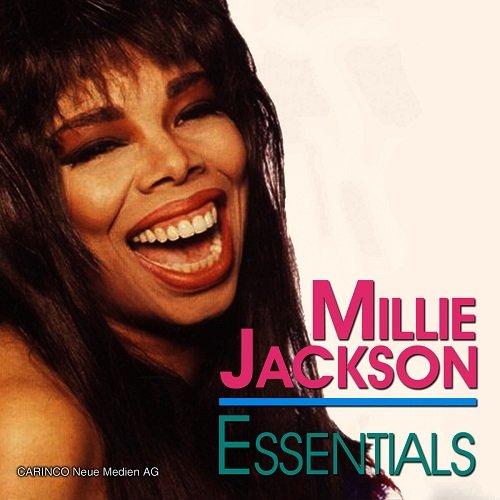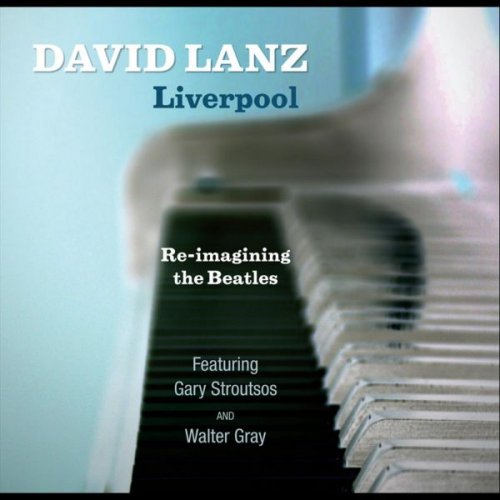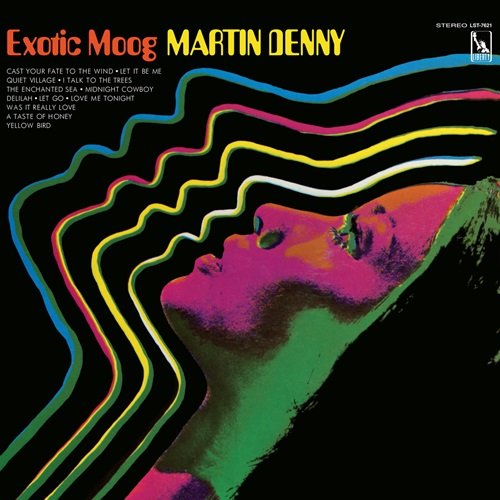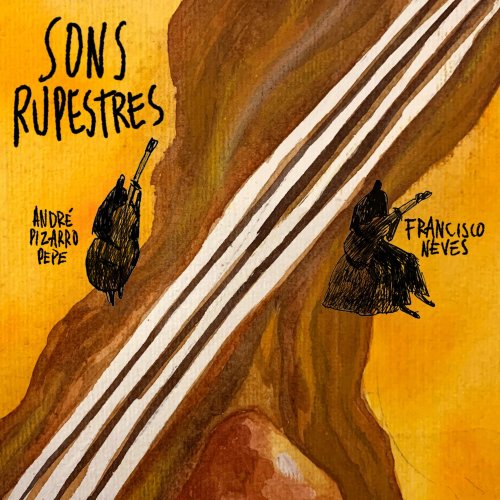Millie Jackson - Essentials (2010)

Artist: Millie Jackson
Title: Essentials
Year Of Release: 2010
Label: Carinco
Genre: Soul, Funk, R&B
Quality: Mp3 320 / Flac (tracks)
Total Time: 01:08:10
Total Size: 166/447 Mb
WebSite: Album Preview
Tracklist:Title: Essentials
Year Of Release: 2010
Label: Carinco
Genre: Soul, Funk, R&B
Quality: Mp3 320 / Flac (tracks)
Total Time: 01:08:10
Total Size: 166/447 Mb
WebSite: Album Preview
01. Love Quake 3:48
02. Don't Walk Away 4:58
03. Nothing Lost, Nothing Won 4:13
04. Chocolate Brown Eyes 4:18
05. Don't Give Up On Me Now 5:03
06. I Just Watched My Love Burn Down 4:17
07. I Don't Want To Be Your Friend 4:54
08. Do You Really Want To Go There? 4:21
09. Did You Think I Wouldn't Cry? 4:51
10. Don't Want To Let Him Go 3:20
11. Let 'em Go 3:30
12. Baby I'm Ready Now 6:25
13. Living With A Stranger 5:51
14. Taking My Life Back 4:03
15. Young Man, Older Woman 4:15
Millie Jackson's first taste of singing in front of an audience occurred one night at the famed nightclub Smalls Paradise. Sitting in the audience with friends, Jackson heckled the lady onstage and, when dared to do better, she stepped up to belt Ben E. King's "Don't Play It No More." Jackson was hired for another gig within two weeks, but didn't get paid. A gentleman by the name of Tony Rice took her to a venue in Hoboken, NJ, a couple of weeks later and then on to Brooklyn, NY, to perform for a nominal fee.
Born in Thompson, GA, Jackson lived with her grandmother prior to moving to Newark, NJ, to live with her father in 1958. She grew up influenced by the sounds of Otis Redding, Sam Cooke, and later, the O'Jays. Her first single to chart was 1971's deceptively titled "A Child of God (It's Hard to Believe)," which many thought was a gospel track. Due to its heated lyrical content, the single was canceled, but still managed to peak at number 22 on the R&B charts. In the spring of 1972, Jackson had her first R&B Top Ten single with "Ask Me What You Want." She kept busy performing in nightclubs and enjoyed her second consecutive Top Ten single with "My Man, A Sweet Man" in August of 1972; it peaked at number seven. (Ironically, the song was not one of Jackson's favorites.) A year later, Jackson, whose vocal texture is similar to one of her idols, Gladys Knight, had her third Top Ten single with the moderately paced "Hurts So Good," which peaked at number three on the R&B charts and made the pop Top 40. The single bore the title of her album and was also featured on the movie soundtrack for Cleopatra Jones. Jackson produced the album with Brad Shapiro. However, she was only given credit for the album concept. In Jackson's own words, "...that's when they (label owners) met the real Millie Jackson." Thereafter, she was given credit for her efforts.
In January of 1975, Jackson released the album that would introduce what would later become her trademark rap style of racy, raunchy language; her audience loved it. The album was Caught Up and the featured release was "If Loving You Is Wrong I Don't Want to Be Right," for which she received two Grammy nominations. Jackson openly admits that she never had singing lessons and never thought she could sing. Consequently, she began to talk (or what was commonly known at the time as rap) on her songs in a blunt, candid manner to make up for the shortcoming and had her fourth Top Ten single with country singer Merle Haggard's "If You're Not Back in Love by Monday" (Billboard country charts number two). Jackson's version peaked at number five on the R&B charts. Over the next ten years, Jackson had numerous Top 100 singles for Spring Records. In 1986, she signed with Jive and released her fifth and sixth Top Ten singles in "Hot! Wild! Unrestricted! Crazy Love" and "Love Is a Dangerous Game, both respectively peaking at number nine and six on the R&B charts. In addition to her impressive music career, Jackson wrote the play Young Man, Older Woman; the play toured for four years. Her attention, though, has turned to the broadcast booth as a radio program host on the afternoon radio show in Dallas, TX. According to Billboard, Jackson is one of the top R&B acts to ever record or step onto a stage and is still giving her fans what they want as a radio host and a performer.
Born in Thompson, GA, Jackson lived with her grandmother prior to moving to Newark, NJ, to live with her father in 1958. She grew up influenced by the sounds of Otis Redding, Sam Cooke, and later, the O'Jays. Her first single to chart was 1971's deceptively titled "A Child of God (It's Hard to Believe)," which many thought was a gospel track. Due to its heated lyrical content, the single was canceled, but still managed to peak at number 22 on the R&B charts. In the spring of 1972, Jackson had her first R&B Top Ten single with "Ask Me What You Want." She kept busy performing in nightclubs and enjoyed her second consecutive Top Ten single with "My Man, A Sweet Man" in August of 1972; it peaked at number seven. (Ironically, the song was not one of Jackson's favorites.) A year later, Jackson, whose vocal texture is similar to one of her idols, Gladys Knight, had her third Top Ten single with the moderately paced "Hurts So Good," which peaked at number three on the R&B charts and made the pop Top 40. The single bore the title of her album and was also featured on the movie soundtrack for Cleopatra Jones. Jackson produced the album with Brad Shapiro. However, she was only given credit for the album concept. In Jackson's own words, "...that's when they (label owners) met the real Millie Jackson." Thereafter, she was given credit for her efforts.
In January of 1975, Jackson released the album that would introduce what would later become her trademark rap style of racy, raunchy language; her audience loved it. The album was Caught Up and the featured release was "If Loving You Is Wrong I Don't Want to Be Right," for which she received two Grammy nominations. Jackson openly admits that she never had singing lessons and never thought she could sing. Consequently, she began to talk (or what was commonly known at the time as rap) on her songs in a blunt, candid manner to make up for the shortcoming and had her fourth Top Ten single with country singer Merle Haggard's "If You're Not Back in Love by Monday" (Billboard country charts number two). Jackson's version peaked at number five on the R&B charts. Over the next ten years, Jackson had numerous Top 100 singles for Spring Records. In 1986, she signed with Jive and released her fifth and sixth Top Ten singles in "Hot! Wild! Unrestricted! Crazy Love" and "Love Is a Dangerous Game, both respectively peaking at number nine and six on the R&B charts. In addition to her impressive music career, Jackson wrote the play Young Man, Older Woman; the play toured for four years. Her attention, though, has turned to the broadcast booth as a radio program host on the afternoon radio show in Dallas, TX. According to Billboard, Jackson is one of the top R&B acts to ever record or step onto a stage and is still giving her fans what they want as a radio host and a performer.





![Tomasz Stanko, Polskie Radio - Jazz Rock Company: Live at Akwarium (Polish Radio Sessions vol. 6/6) (2025) [Hi-Res] Tomasz Stanko, Polskie Radio - Jazz Rock Company: Live at Akwarium (Polish Radio Sessions vol. 6/6) (2025) [Hi-Res]](https://www.dibpic.com/uploads/posts/2025-12/1765796554_cover.jpg)


